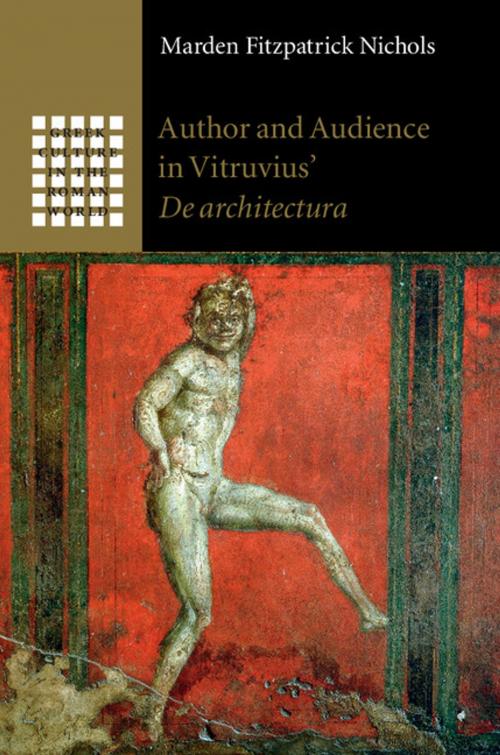Author and Audience in Vitruvius' De architectura
Nonfiction, Art & Architecture, Architecture, History, Ancient History| Author: | Marden Fitzpatrick Nichols | ISBN: | 9781108546768 |
| Publisher: | Cambridge University Press | Publication: | October 26, 2017 |
| Imprint: | Cambridge University Press | Language: | English |
| Author: | Marden Fitzpatrick Nichols |
| ISBN: | 9781108546768 |
| Publisher: | Cambridge University Press |
| Publication: | October 26, 2017 |
| Imprint: | Cambridge University Press |
| Language: | English |
Vitruvius' De architectura is the only extant classical text on architecture, and its impact on Renaissance masters including Leonardo da Vinci is well-known. But what was the text's purpose in its own time (ca. 20s BCE)? In this book, Marden Fitzpatrick Nichols reveals how Vitruvius pitched the Greek discipline of architecture to his Roman readers, most of whom were undoubtedly laymen. The inaccuracy of Vitruvius' architectural rules, when compared with surviving ancient buildings, has knocked Vitruvius off his pedestal. Nichols argues that the author never intended to provide an accurate view of contemporary buildings. Instead, Vitruvius crafted his authorial persona and remarks on architecture to appeal to elites (and would-be elites) eager to secure their positions within an expanding empire. In this major new analysis of De architectura from archaeological and literary perspectives, Vitruvius emerges as a knowing critic of a social landscape in which the house made the man.
Vitruvius' De architectura is the only extant classical text on architecture, and its impact on Renaissance masters including Leonardo da Vinci is well-known. But what was the text's purpose in its own time (ca. 20s BCE)? In this book, Marden Fitzpatrick Nichols reveals how Vitruvius pitched the Greek discipline of architecture to his Roman readers, most of whom were undoubtedly laymen. The inaccuracy of Vitruvius' architectural rules, when compared with surviving ancient buildings, has knocked Vitruvius off his pedestal. Nichols argues that the author never intended to provide an accurate view of contemporary buildings. Instead, Vitruvius crafted his authorial persona and remarks on architecture to appeal to elites (and would-be elites) eager to secure their positions within an expanding empire. In this major new analysis of De architectura from archaeological and literary perspectives, Vitruvius emerges as a knowing critic of a social landscape in which the house made the man.















